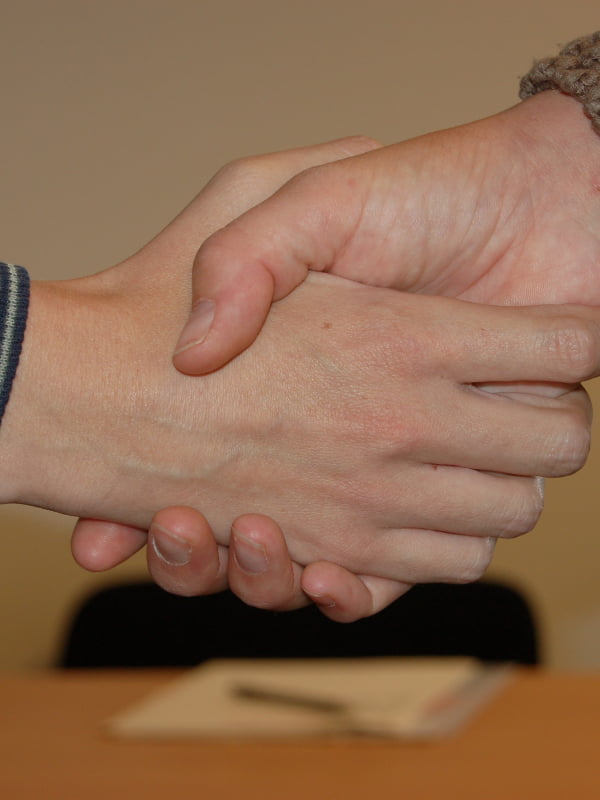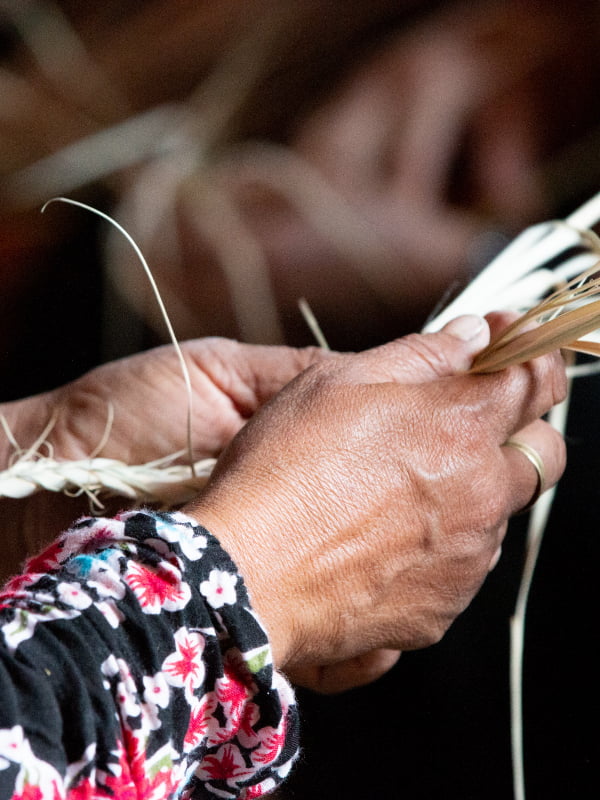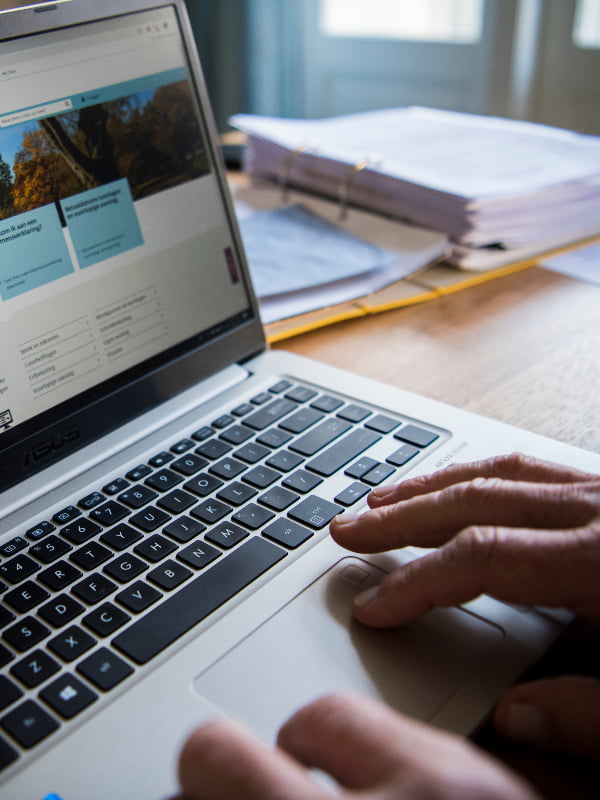Reversing the Flow - RtF
Supports communities in vulnerable situations by strengthening their water security. RtF aims to make communities more resilient with locally-led water, landscape restoration and climate adaptation actions. Local partners, called hubs, will support communities in organising and leading these actions themselves.
What does Reversing the Flow do?
RtF's strategy has 3 pillars: The programme works on:
1. Funding
RtF funds local organisations, called hubs, to facilitate community-led landscape restoration, water security and climate resilience interventions through a small-grants mechanism for grassroots organisations.
2. Knowledge development and learning
RtF facilitates knowledge development and learning:
- across informal communities within a watershed or landscape;
- between communities and local governments, utility companies, civil societies, development partners, community-based organisations (CBOs), and other landscape actors;
- between landscapes and hubs at the programme level.
3. Engaging dialogues
RtF facilitates and engages in policy dialogues on investments in the landscapes at multilateral, national and local levels. This way, interventions result in sustainable and inclusive development for the communities involved.
RtF aims to achieve the following:
- Vulnerable communities implement and replicate inclusive, nature-based landscape restoration, water security and climate-resilient livelihood solutions;
- Decision makers include communities' needs, rights and priorities in decisions over policies and investments affecting their landscape, water security and livelihoods;
- Formal development actors, including Dutch actors, adopt programme design principles to ensure that local, vulnerable groups benefit justly.
Target countries
Reversing the Flow targets 5 countries: Bangladesh, Burkina Faso, Ethiopia, Kenya and Sudan.
Target groups
RtF supports communities in vulnerable landscapes in the target countries.
Inclusion is an essential criterion for the selection of community groups. RtF aims to break through existing power structures by empowering women, youth and disadvantaged groups. The programme focuses on new initiatives where local people, especially the most vulnerable, are in the lead.
10 local organisations interested in supporting local initiatives and meeting the criteria have been selected as RtF hubs.
Hubs
Hubs are local partners that support communities to develop and carry out initiatives.
Hubs meet the following criteria:
- Are independent, self-steering, mature civil society organisations, partnerships or networks;
- Operate at a landscape or watershed scale;
- Are well embedded in local civil society;
- Can navigate local power dynamics;
- Have a record of accomplishment in working with grassroots organisations on resilience, water management, climate change and nature-based solutions;
- Apply participatory and inclusive approaches to support locally-led development;
- Have the capacity to design and implement a local support facility that can financially contribute to local initiatives;
- Meet international management standards and obligations.
Hubs fulfil more than one role in RtF. They also:
- Help their network of grassroots organisations develop a portfolio of interventions following RtF's aims, including enabling access to required technical expertise;
- Operate as small grants providers to grassroots organisations;
- Coordinate and monitor the implementation of the interventions;
- Hold grassroots organisations accountable for the use of the funding;
- Help with networking and the exchange of knowledge between grassroots organisations within a landscape;
- Help grassroots organisations participate in policy and investment dialogues with local authorities and private sector initiatives at the landscape and watershed level;
- Discuss learnings with other RtF programme actors;
- Report to the Netherlands Enterprise Agency on the progress of initiatives.
We have completed the selection of hub organisations for the current phase.
Grassroots organisations
Grassroots organisations unite people in a society. These formal and informal organisations engage with local stakeholders to resolve livelihood, water security or climate adaptation challenges. Also, grassroots organisations help communities with their needs, implementation plans and budgets.
Within the RtF programme, grassroots organisations will build networks, interact with peers, and:
- Work together with the hub in their landscape;
- Manage and account for the funding allocated by the hub;
- Follow agreed-upon management standards and obligations;
- Coordinate and monitor community-level implementation; and
- Document lessons learnt and share these with other actors in their landscape.
Knowledge component
Knowledge development and learning are essential factors in achieving the outcomes of RtF initiatives. Hubs provide grassroots organisations with access to relevant knowledge on water security and climate change adaptation, facilitate exchange with other actors in the landscape, and support the use of lessons learnt in policy and investment dialogues. Hubs share principles, tools and networks for locally-led adaptation. They also gather lessons from the RtF programme to convince development actors to adopt new working methods that enhance local autonomy and initiatives.
To support knowledge development and learning, we have a knowledge partner who will:
- Support the hubs in their tasks, more specifically in facilitating knowledge exchange, documenting learnings and supporting policy dialogues;
- Support a solid understanding of existing landscape governance, aid structures, barriers and pathways to foster more bottom-up development; and
- Support reflexive monitoring and adaptive programming.

Read all our inspiring stories on locally-led adaptation from various RtF initiatives on our webpage
Sustainable Development Goals
RtF contributes to the following SDGs:
- SDG 6: Clean water and sanitation
- SDG 13: Climate action
- SDG 15: Life on land
- SDG 17: Partnerships for the goals.
More information on RtF
Are you interested in Reversing the Flow? Do you meet the criteria for a hub? Contact us for more information on funding. You may also contact your country's embassy of the Kingdom of the Netherlands.
Laws, regulations and publications
The Netherlands Ministry of Foreign Affairs and the Netherlands Enterprise Agency created the RtF programme. RtF policy frameworks and rules refer to various documents. You can find these references via the following links:
Responsible Business Conduct (RBC)
Your project must follow the international Responsible Business Conduct (RBC) guidelines. We take RBC into account when assessing your funding application. We ask you to:
- follow OECD guidelines;
- show how you conduct your operations following these OECD guidelines;
- carry out a proper risk analysis of social and environmental risks;
- state the measures to prevent and reduce these risks.
During the project, you must report on RBC risks and state the measures you are taking or plan to take to prevent and reduce these risks.
Dutch companies must complete an RBC self-assessment as part of the application process. The Dutch government uses this scan to check whether a company is aware of and follows the OECD guidelines. This assessment is a requirement for approval of your project.
On our website, you can read more about RBC and due diligence.
Looking for inspiration?
See other projects we support via our Development Cooperation projects database.
Reversing the Flow puts communities in charge of water security
- Ministry of Foreign Affairs



